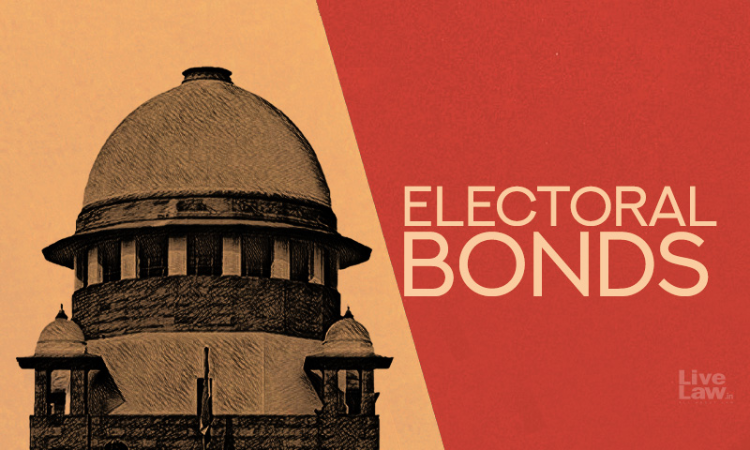Supreme Court To Hear Challenge Against Electoral Bonds Scheme On October 31
Padmakshi Sharma
10 Oct 2023 12:01 PM IST

Next Story
10 Oct 2023 12:01 PM IST
The Supreme Court will hear the batch of petitions challenging the Electoral Bonds scheme on October 31, 2023. A bench comprising CJI DY Chandrachud, Justice JB Pardiwala, and Justice Manoj Misra heard the preliminary issues today. The petitioners have decided to not argue on the scheme being passed as a money bill as of now since the issue pertaining to money bills is yet to be decided by...
